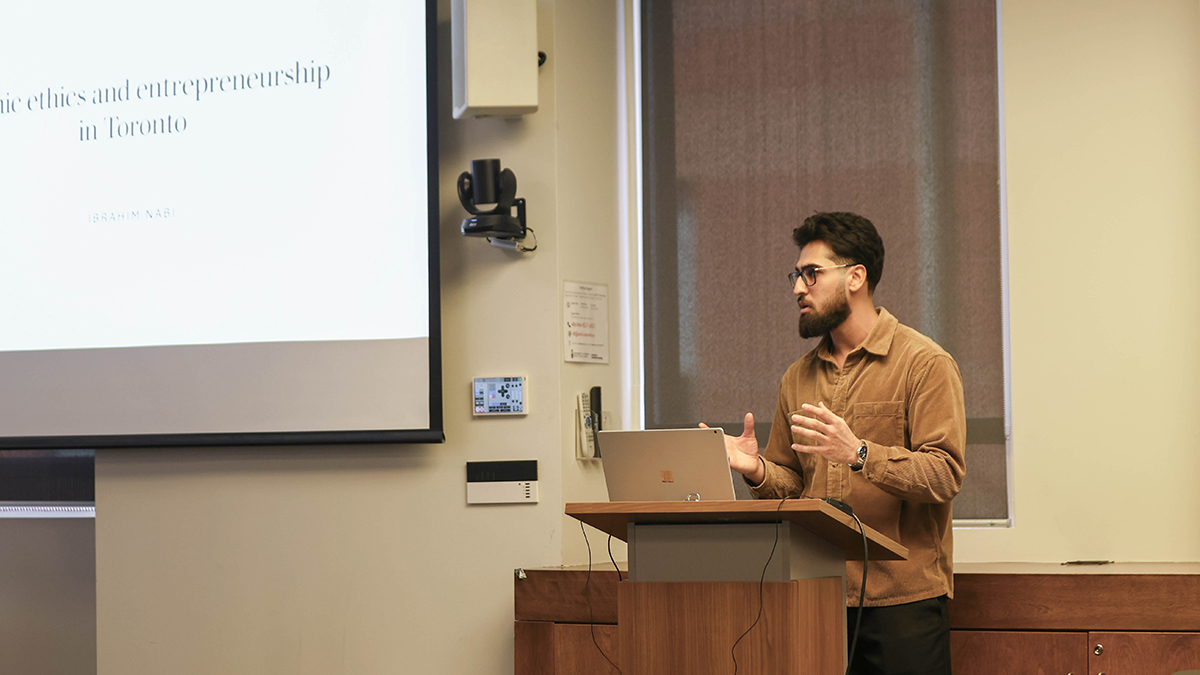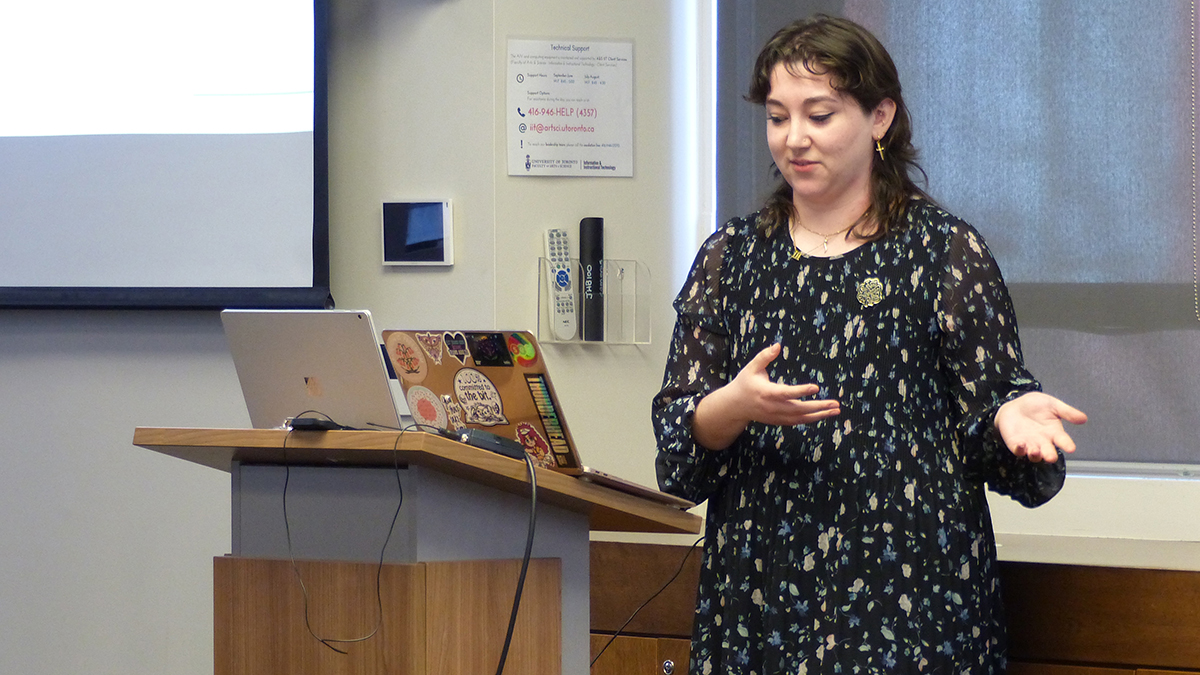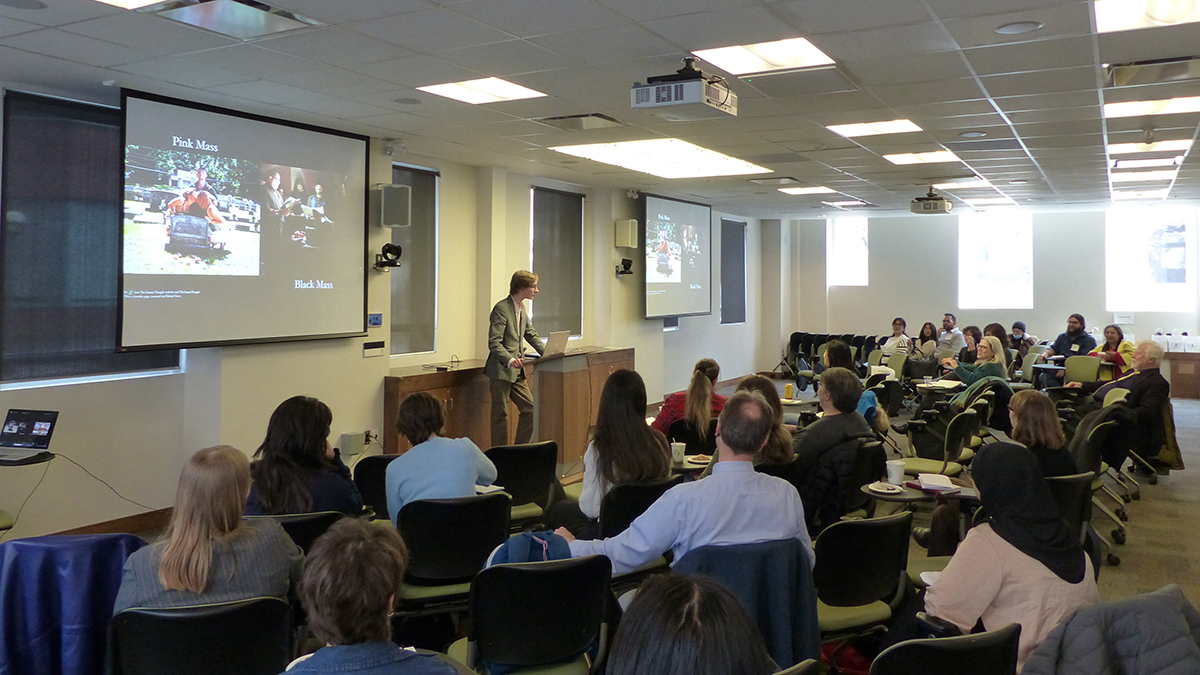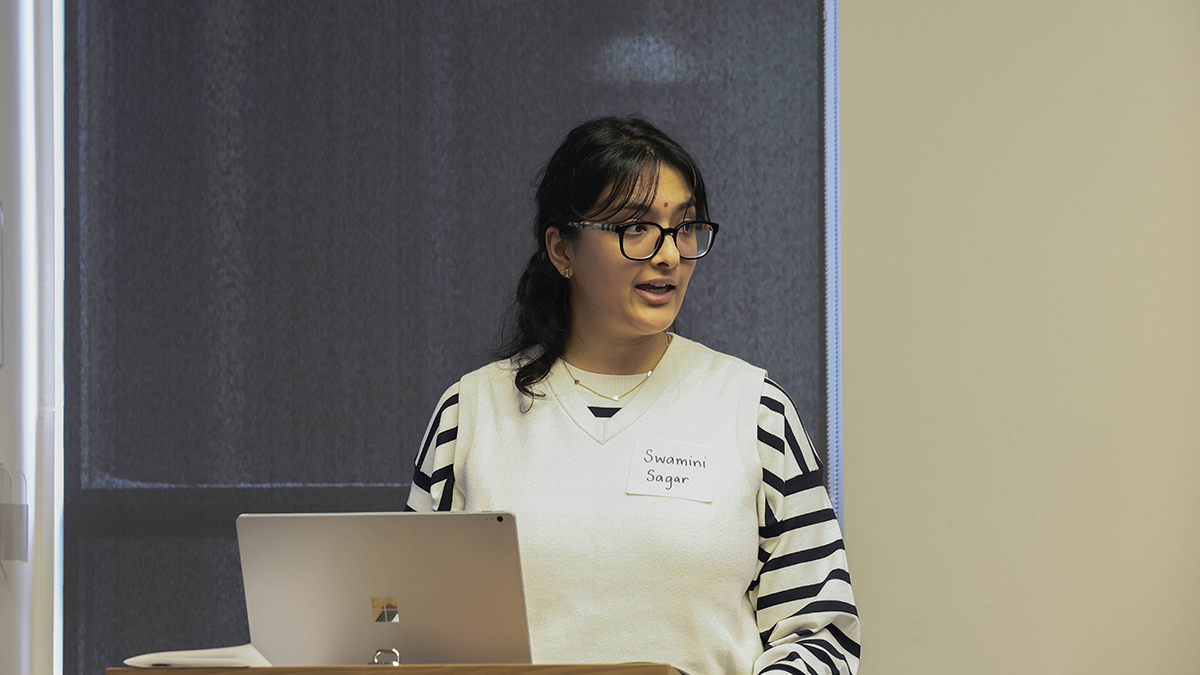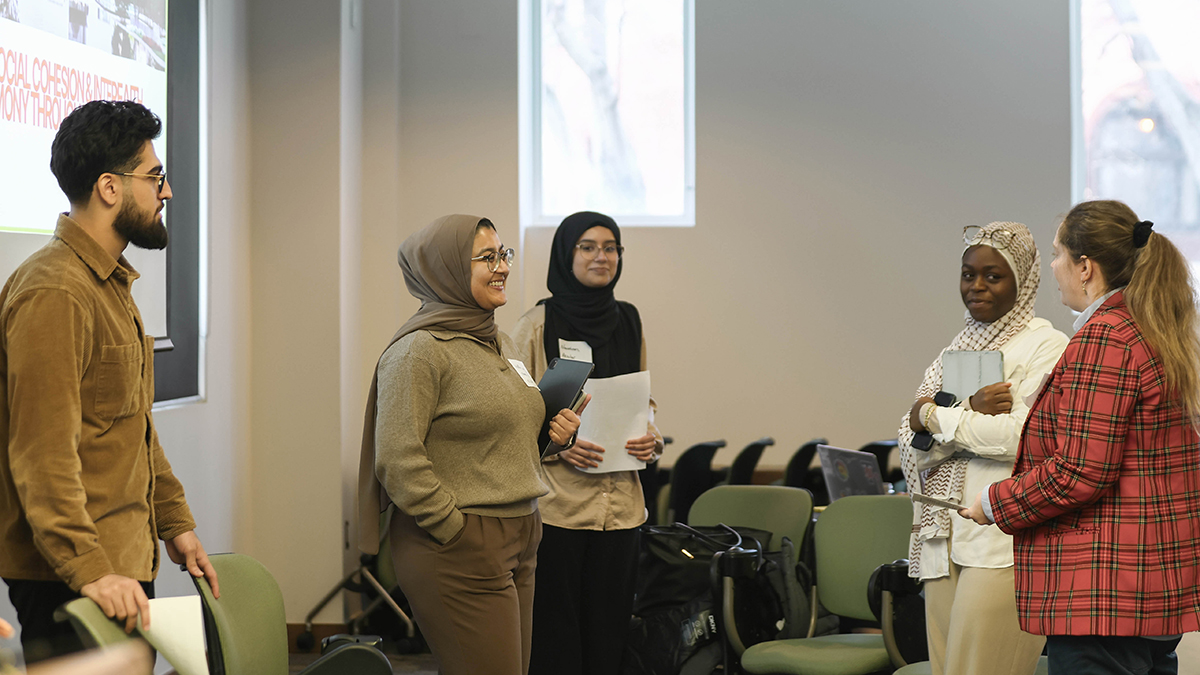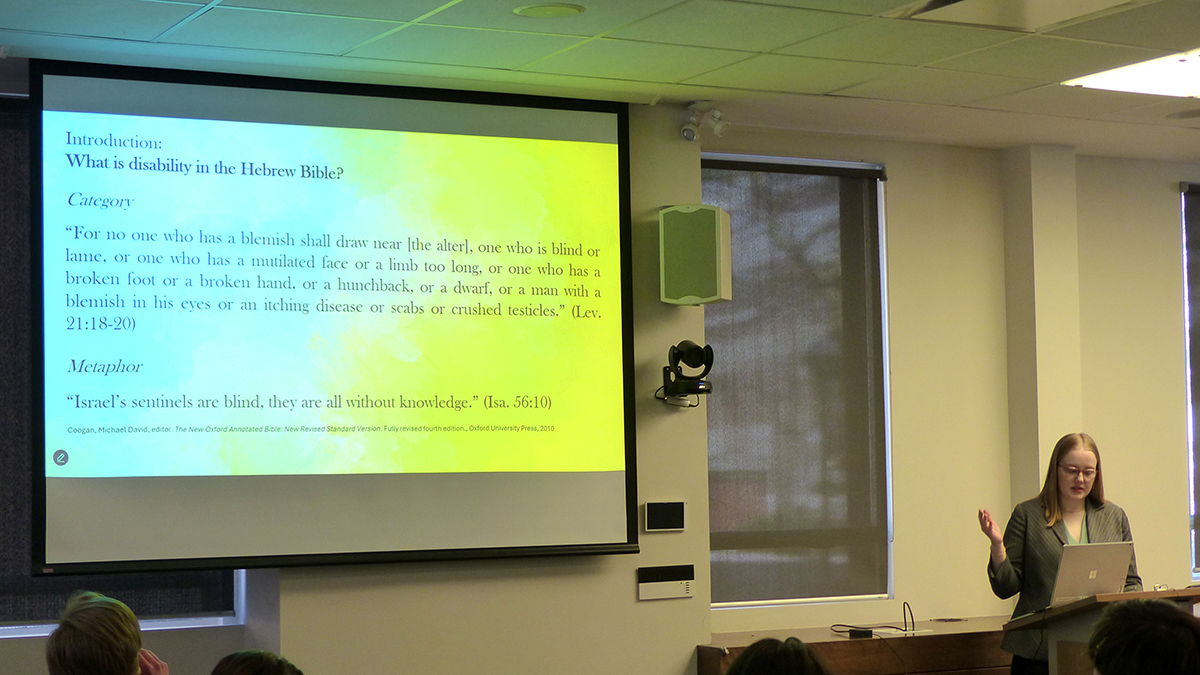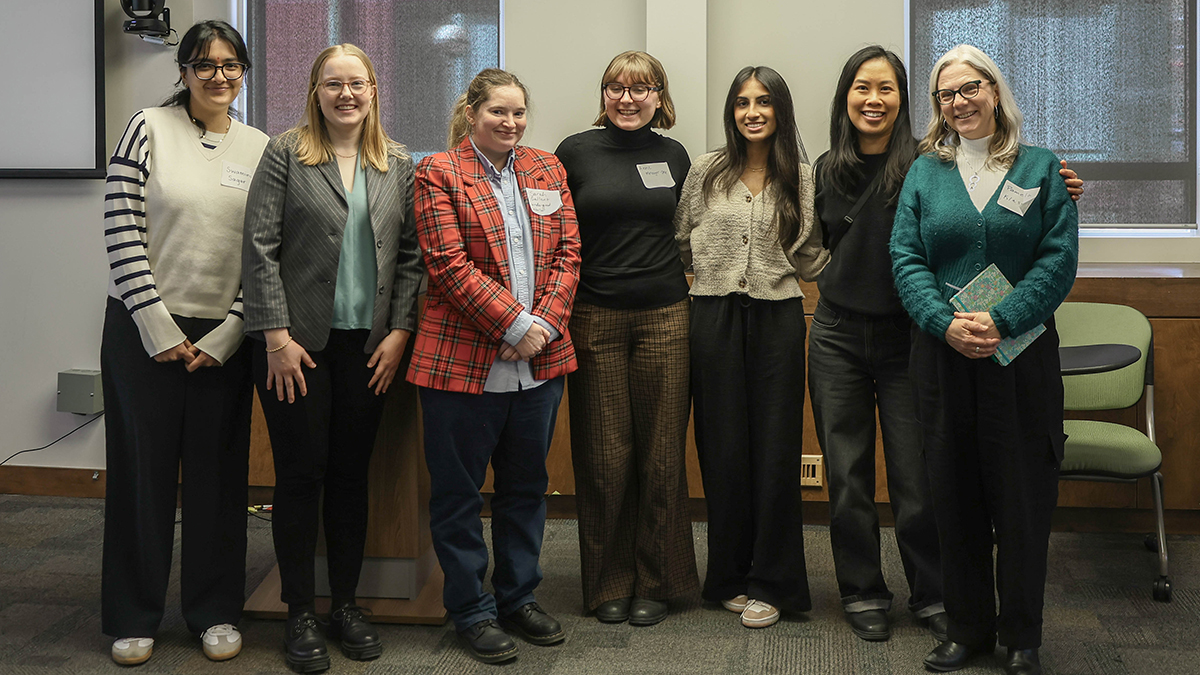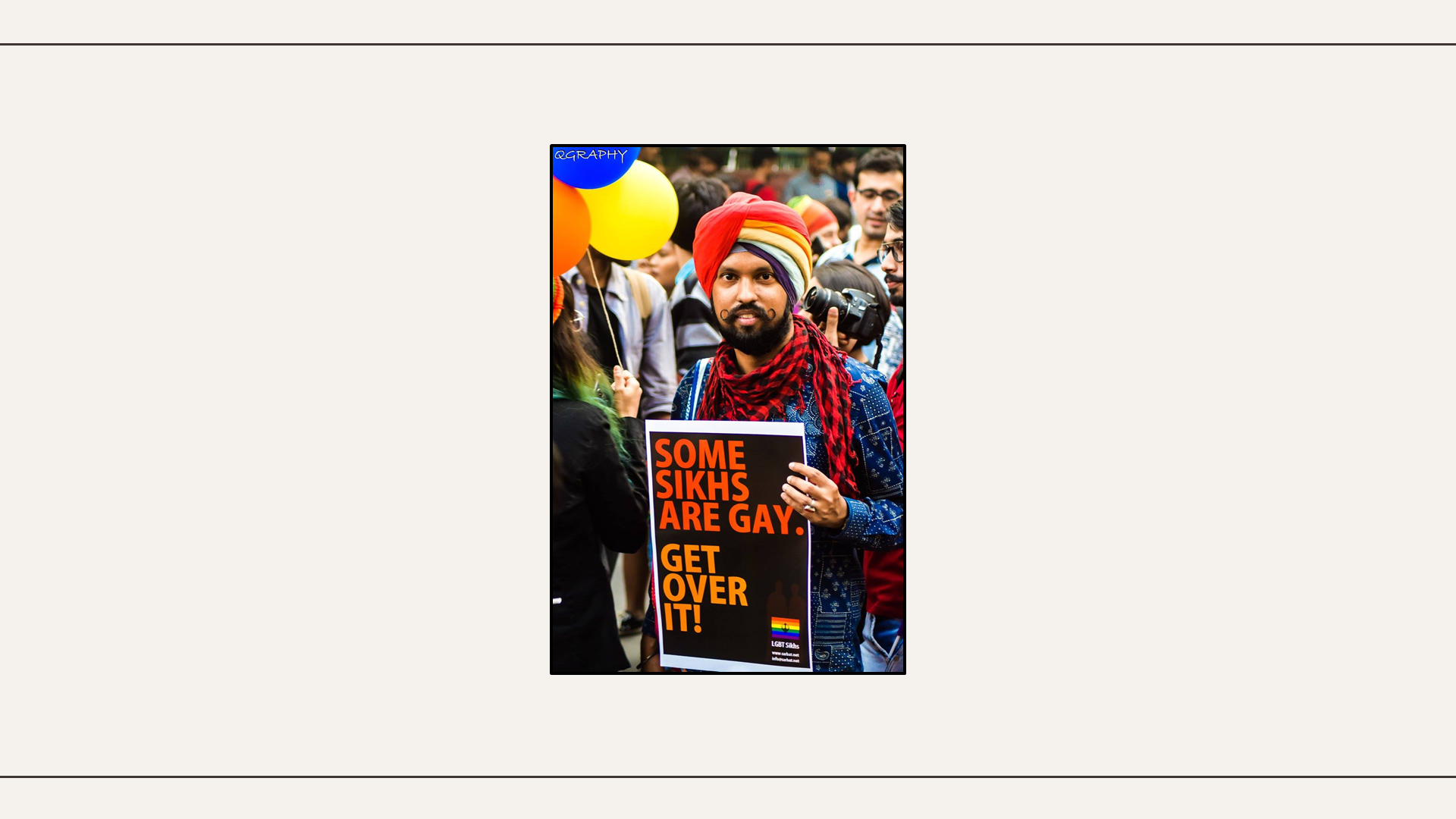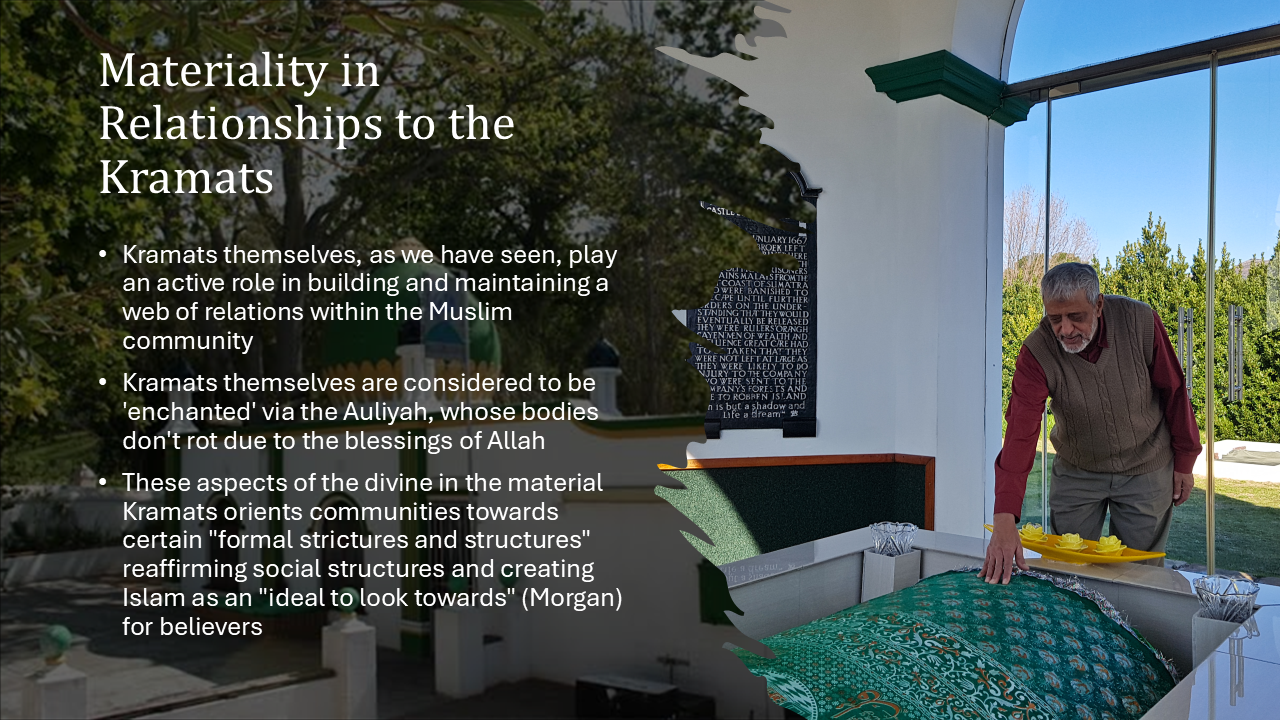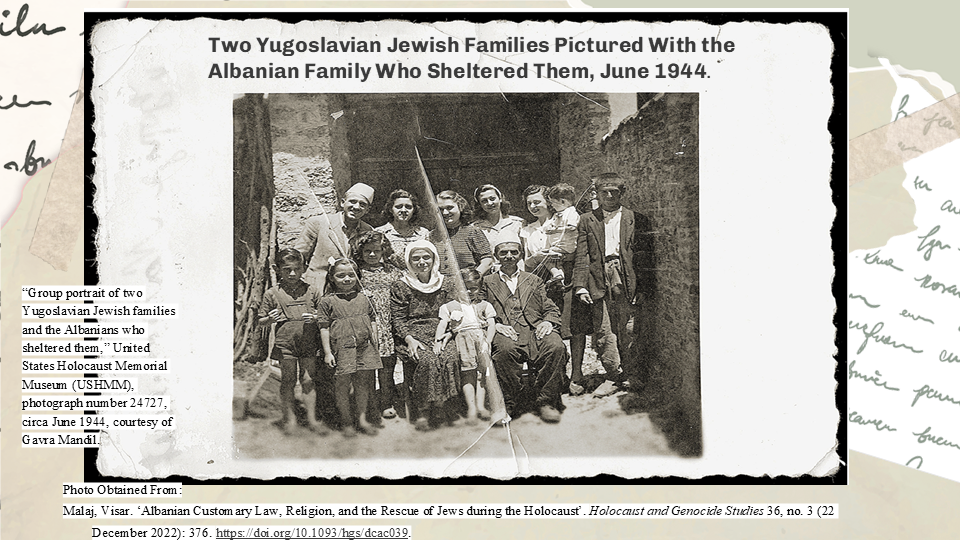← Back to Spring 2025 Newsletter Contents
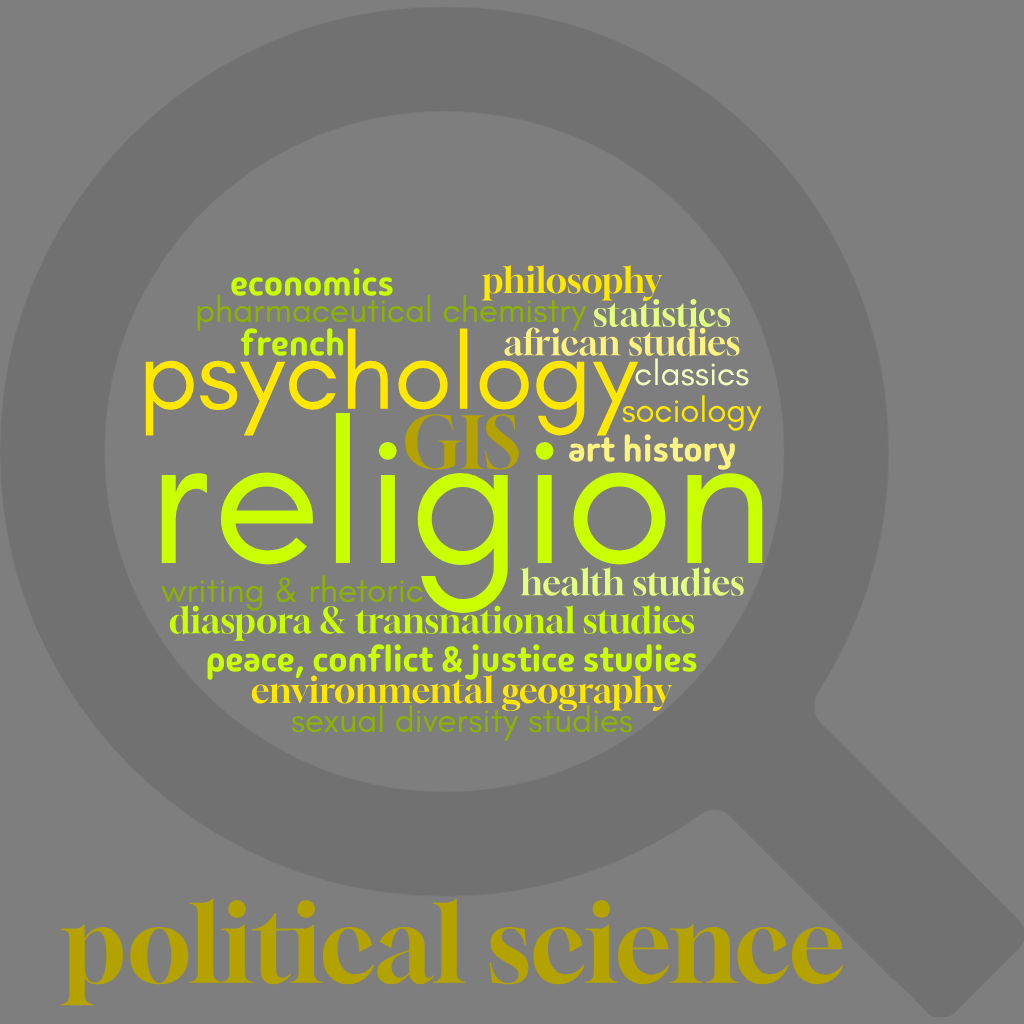
Our fourth annual undergraduate student conference took place on April 8, 2025, presented by the Religion Undergraduate Association (RUSA) in partnership with the DSR. This conference has consistently been a lively and fascinating culmination of students' curiosity, research excellence, and hard work, and 2025 was no exception.
With papers considering questions of religion, politics, heritage and radicalization, as well as issues of charity, sexuality and heathcare, the conference vividly demonstrates the importance of critical analysis of religion in our time.
DSR students represent the breadth of opportunity of the University of Toronto's Faculty of Arts & Science, as they make the most of religion courses – from specialist to major to minor – in combination with an impressive array of programs.
Below you will find a brief peek into the presentations given at the conference, providing an insight into the sheer variety of these journeys of intellectual adventure.
The Undergraduate Student Conference Committee for 2025
Dr. Sarah Gallant, Assistant Professor
Amy Huynh, Undergraduate Administrator
Swamini Sagar, RUSA President
Aneri Patel, RUSA Director of External Affairs
Miranda Crabtree, RUSA Director of Internal Affairs
Annie Metzger-Oke, RUSA Director of Communications
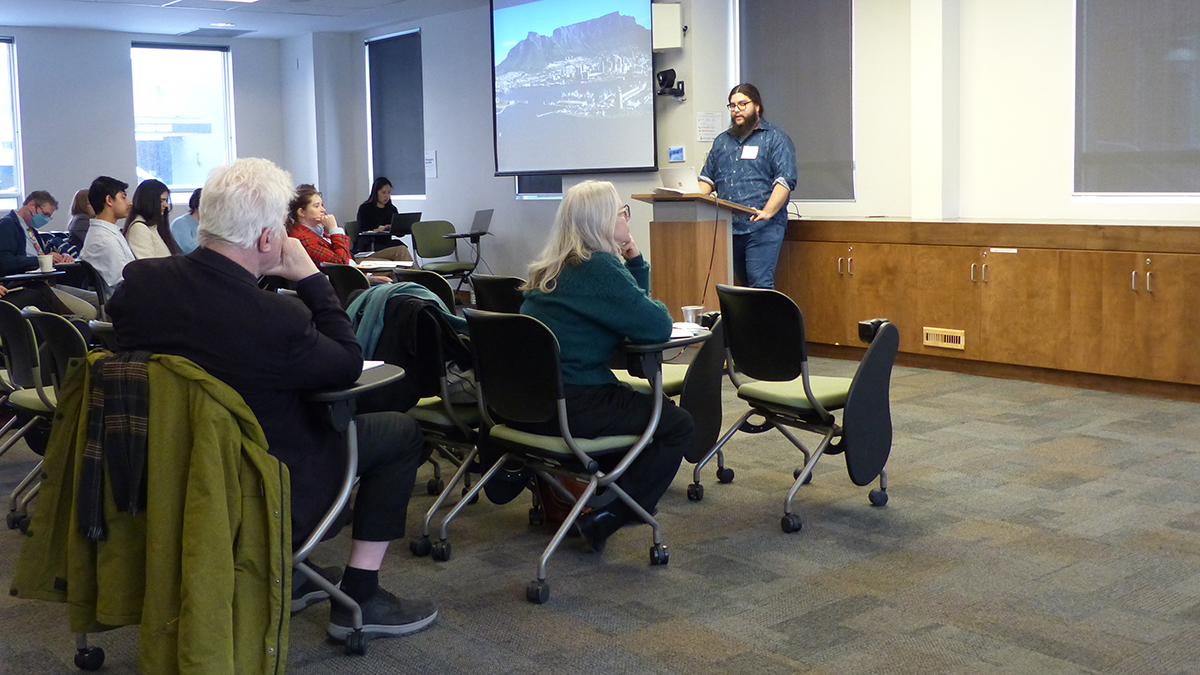
 Navigating Identities
Navigating Identities
Our presenters explored case studies where individuals navigate community.
 Rebels and Reactionaries
Rebels and Reactionaries
A session considering contrasting views and contested sites.
A comparison between the Satanic Temple (TST) and the Order of the Nine Angles, and how each Satanic group positions themselves against Liberalism and Christianity. Exploring what satanism means, and how a “satanist” might pose themselves in relation to the world they live in, this exploration examined the relationship between TST and the American “Religious Right” and what this indicates about the beliefs of TST – and how we can consider TST in the American political context as a result.

While atheism is typically associated with progressivism, a subset of atheists—mostly anti-theists—have embraced right-wing extremism (RWE). Identity formation theories suggest that this phenomenon may be due to an ideological vacuum left by a former religious identity to be filled by RWE. Using large language model qualitative analysis and interviews with atheist creators, this research identifies thematic differences in online user comments; Atheist YouTube emphasizes dialogue and healing while r/Atheism promotes outgroup derogation. These differences align with social identity theory, which suggests that group dynamics and platform design can influence RWE expression.

Complex political dynamics play out between Pagan groups and heritage management bodies at the UNESCO World Heritage Sites (WHS) of Stonehenge and Avebury. These megalithic sites play host to many competing discourses, including intra-Pagan disputes on their sacred qualities and universal significance. Recent cases of right-wing ethno-nationalist ‘Folkish’ Pagan groups attempting to use megalithic sites for their own ritual purposes have been met with resistance from both ‘Universalist’ Pagan organizations and heritage management bodies, who perceive ‘Folkish’ presence as a threat to the WHS. The two Pagan groups hold fundamentally oppositional conceptions of sacred space that limit the capacity for coexistence at the WHS; ‘Universalist’ Pagan groups oppose the presence of ‘Folkish’ groups as they threaten the natural and built environment, seek to limit shared access to sites, and pose a risk to future Pagan engagements, all behaviours which disrupt the qualities making the WHS sacred to ‘Universalist’ Pagans.
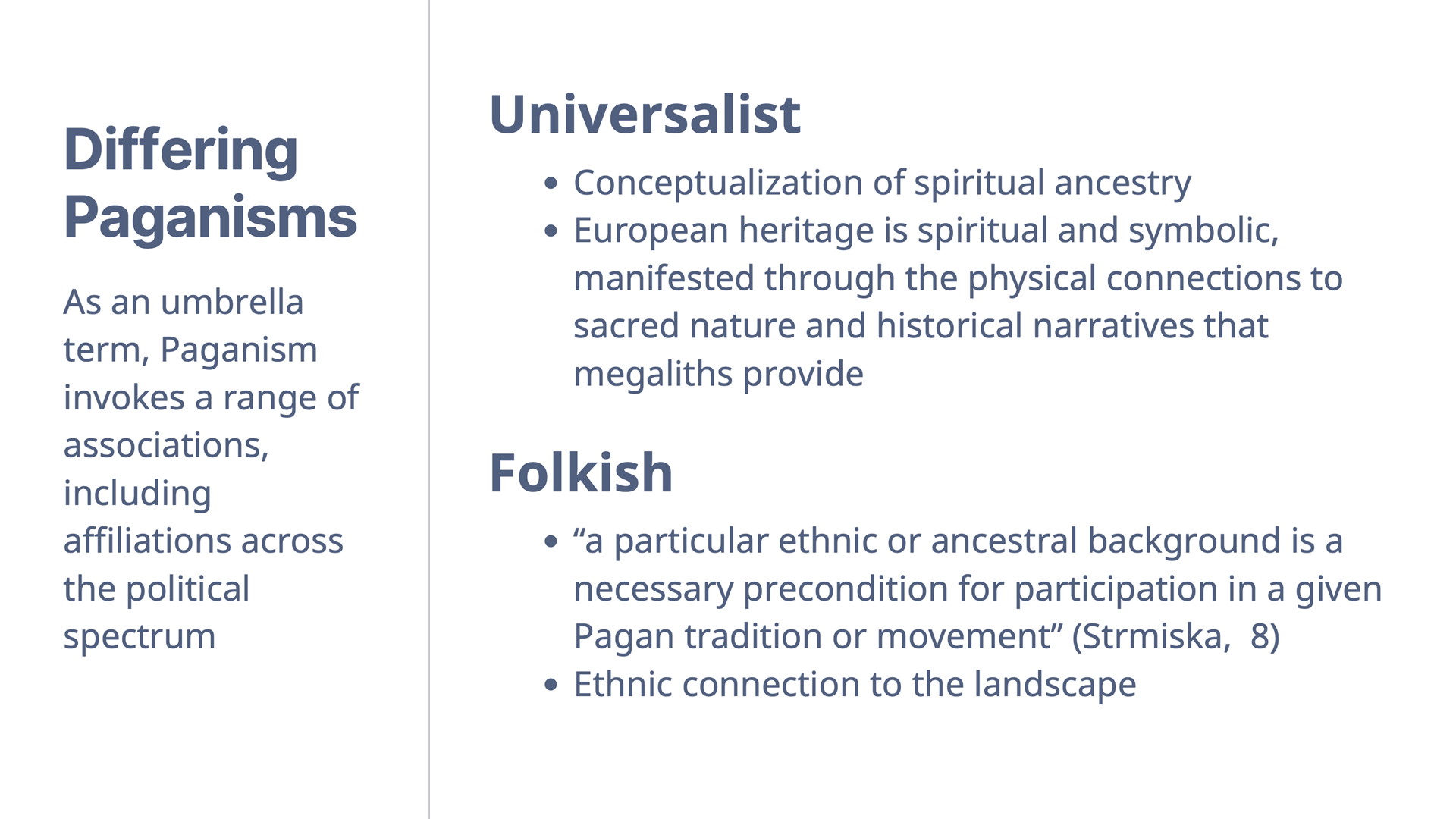
 Bodies and Medicine
Bodies and Medicine
Perspectives on bodies and medical practice.
The vilification of herbal abortions performed by female spiritual healers and midwives in early modern Europe by actors within the Catholic Church was pivotal in stigmatizing female reproductive autonomy and suppressing female healthcare knowledge. This characterization of herbalism as witchcraft was part of a broader structural shift, politicizing female anatomy by centralizing medical information as a means of Catholic patriarchal control, whose legacy persists in modern medicine and reproductive health discourse today. Religious entanglement in political structures remains evident within debates about reproductive care policy and in the lack of medical research surrounding the female reproductive system.

In the biblical disability studies field we see analysis of the narrative function of a disability within its wider biblical context, alongside a second approach that considers the experience of a biblical character with a disability. This presentation argues that just as we might hypothesize the experience of revelation or exile, we must hypothesize the experience of disability – not only because it enhances biblical narratives, but because it sees disability as a conceptual category of personal and social experience in the biblical period, as well as the ways these relate to or diverge from our current cultural norms.
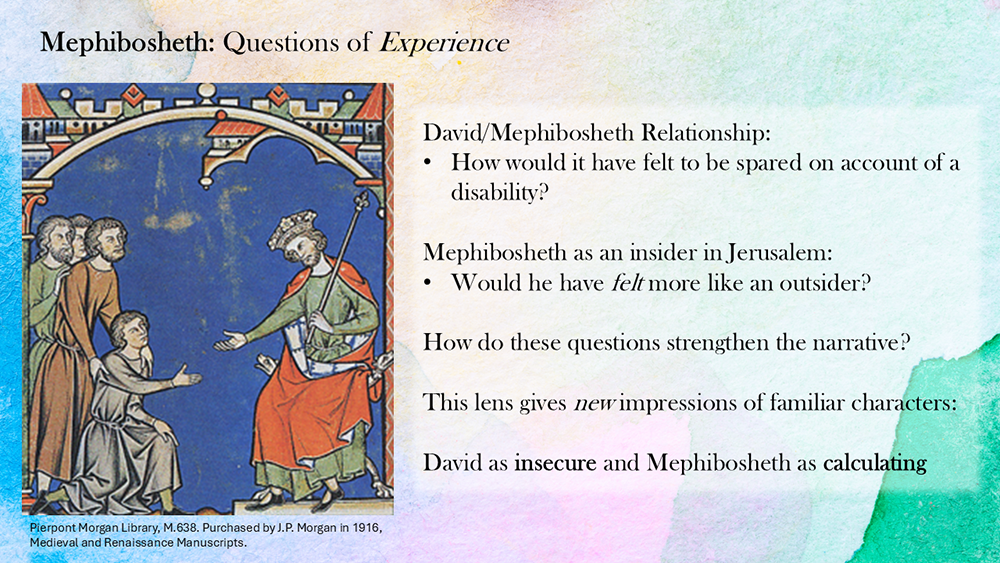
 Panel Discussion: Ethnographic Explorations in Toronto
Panel Discussion: Ethnographic Explorations in Toronto
A discussion exploring diverse perspectives and contexts, in which each of the panelists had conducted ethnographic fieldwork within Toronto as part of their coursework.
This study examines how Ismaili Muslims engaged in philanthropy encounter and interpret interfaith influences, including ideas and practices associated with other traditions, and how these encounters shape their broader perspectives on religious and social engagement. By centering lived experiences rather than assuming a particular interfaith framework, this research highlights the complexity of interreligious engagement and philanthropy in a multicultural setting.
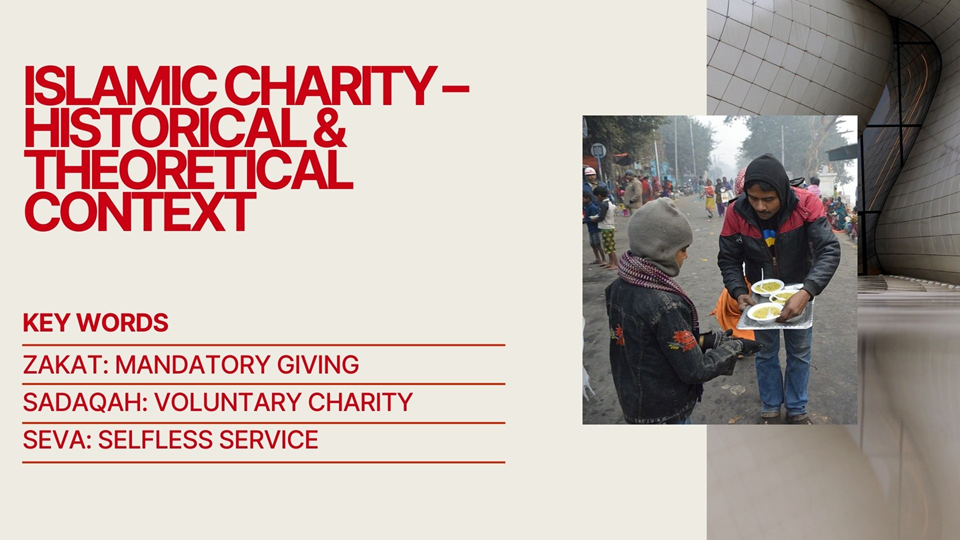
Veiling, or the use of head and/or face coverings, is part of many Muslim women’s’ practice of the Islamic principle of hijab, or the practice of modesty. Through interview and observation-based ethnographic research, this paper explored the ways in which socio-cultural formations around the performance of hijab impact belief in and practices of hijab among members of the South Asian Shi’a Ithna Ash’ari Muslim diaspora living in and around Toronto.
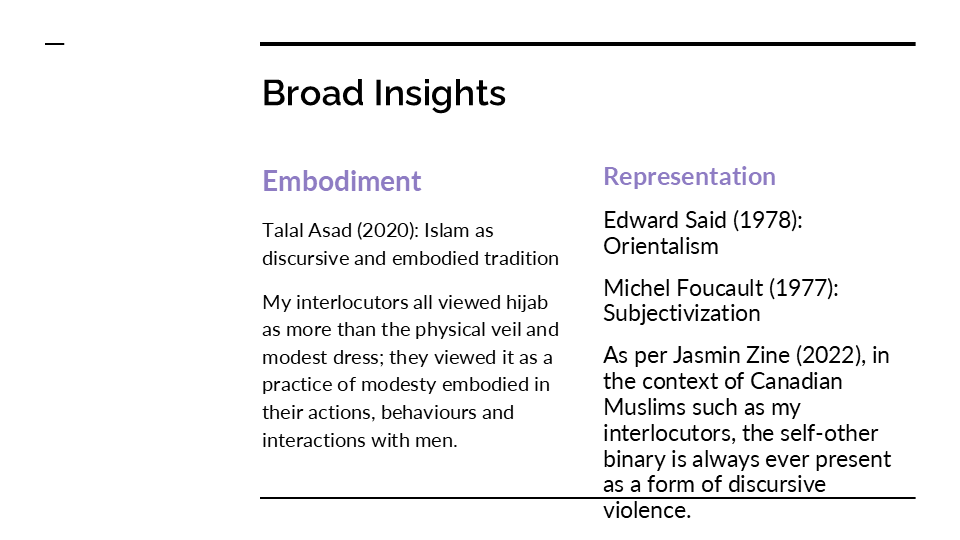
Toronto’s multicultural landscape serves as a dynamic setting for exploring the intersection of Islamic ethics and entrepreneurship. Through a semi-structured interview, this research investigates how Islamic principles, community networks, and moral considerations shape entrepreneurial decision-making in a competitive market, particularly concerning the ethical implications of interest-based transactions (riba).
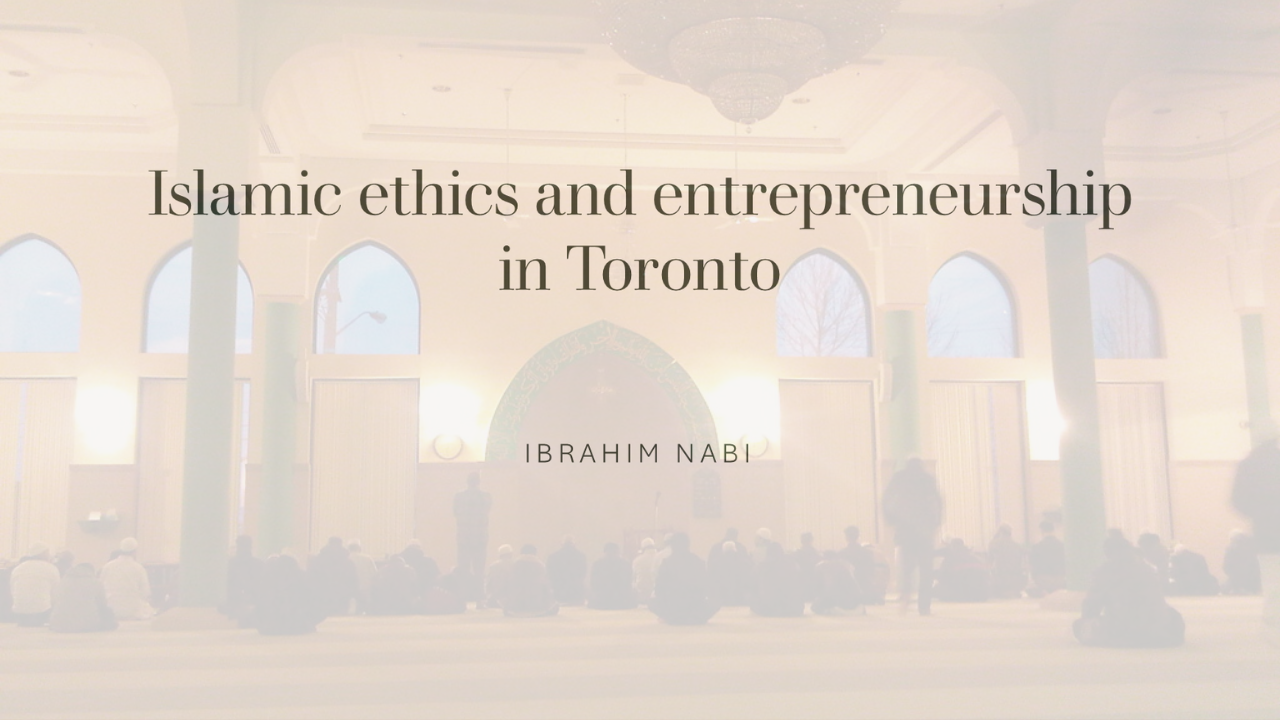
The Quran, the sacred text of Islam, is regarded as the divine kalam (word) of Allah. Muslims are encouraged to maintain a relationship with the Quran as mentioned in various verses. This reverence for the Quran is further upheld through the tradition of Hifz – a sacred process in which an individual dedicates themselves to memorizing the entire Quran by heart. But what does Hifz truly look like in practice? This research seeks to understand how a young Hafiz (a person who has memorized the Quran) attending university in Toronto navigates their relationship with the Quran in daily life.
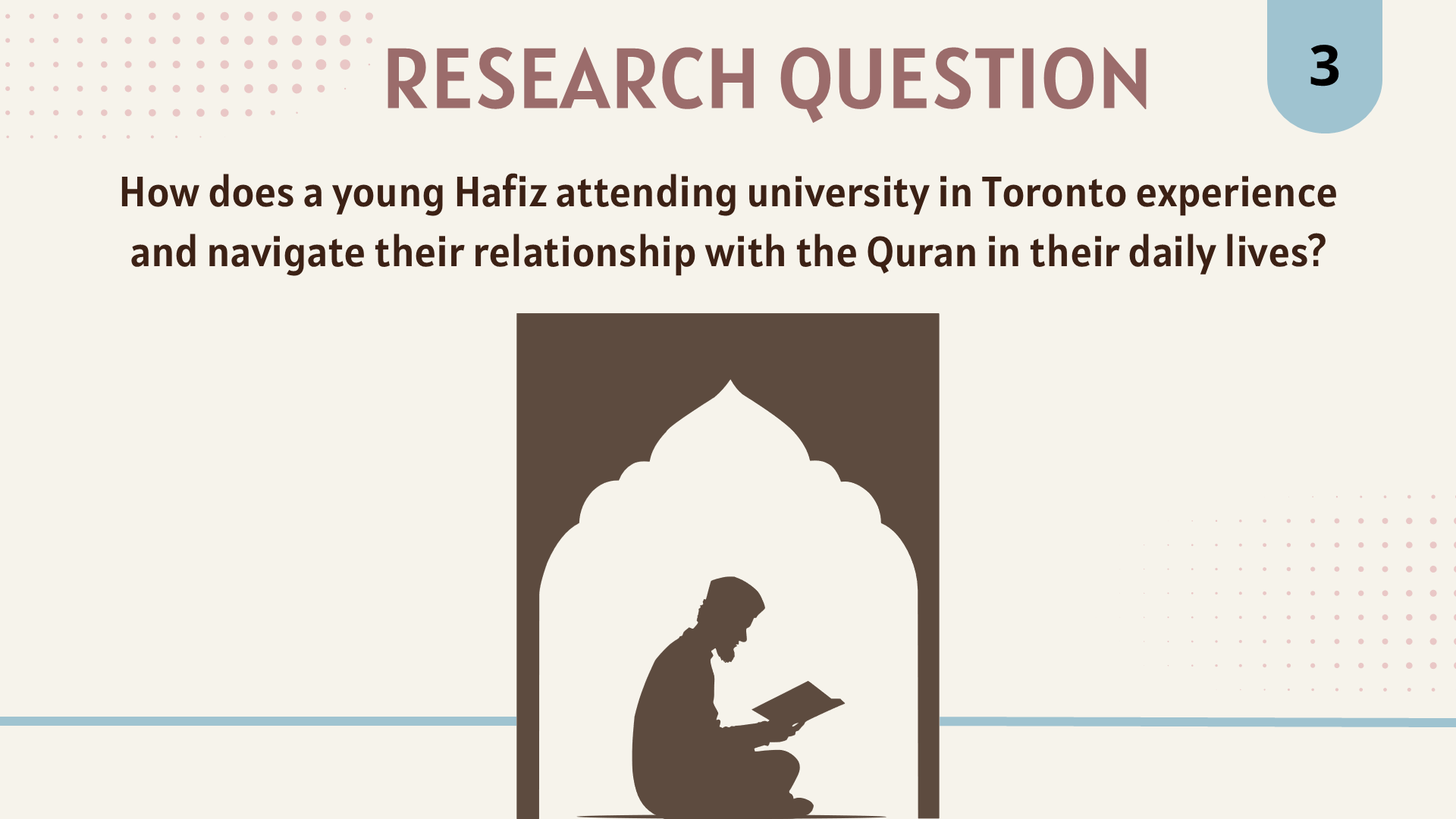
Using conceptual frameworks derived from the fields of medical anthropology and the anthropology of religion, this interview-based ethnographic project investigates how a Toronto Muslim woman suffering from osteoarthritis, a debilitating chronic illness that causes joint pain, navigates the five prayers Muslims are obligated to perform daily with respect to the limitations imposed by her condition.
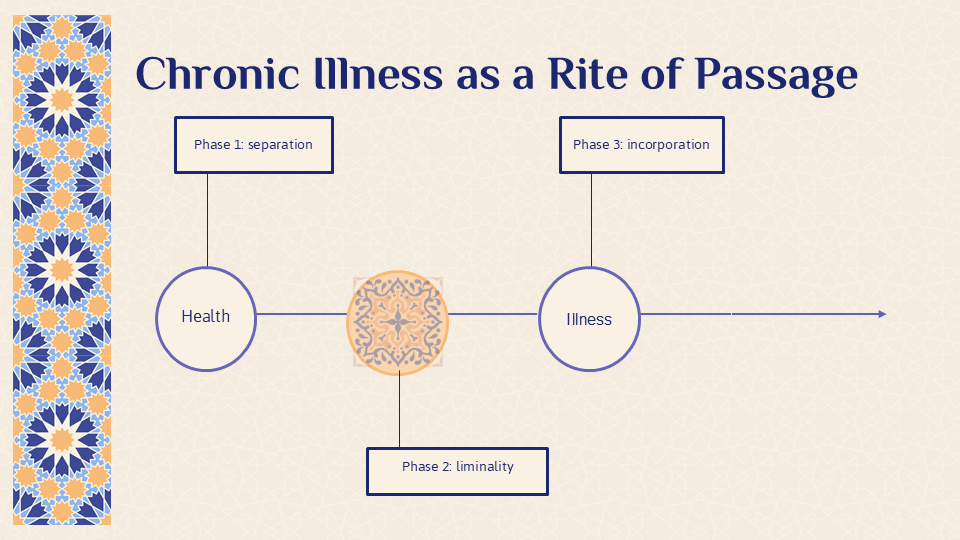
← Back to Spring 2025 Newsletter Contents
Some Conference Photos
 View more photos
View more photos
